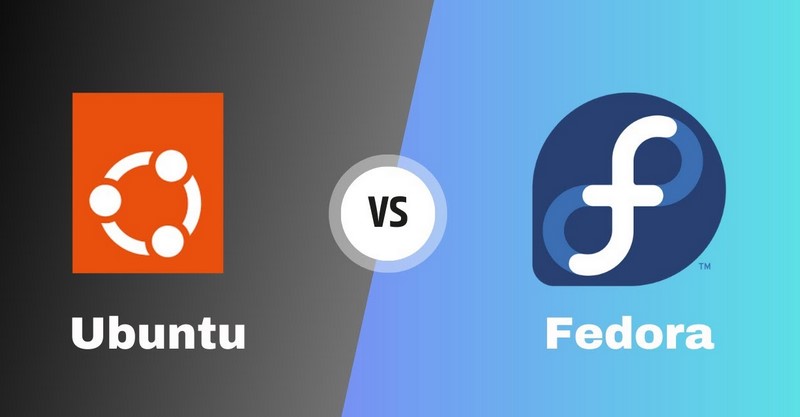Table of Contents
Ubuntu vs Fedora: Ubuntu or Fedora? What’s the difference? Read this comparison of Ubuntu and Fedora.
What is the Ubuntu?
Ubuntu, often hailed as the “Linux for human beings,” is an open-source, Debian-based operating system that has gained immense popularity for its user-friendliness and accessibility. Developed and maintained by Canonical Ltd., Ubuntu has consistently strived to bridge the gap between the complexities of Linux and the expectations of everyday users. Its name, derived from an African philosophy emphasizing community and interconnectedness, aptly reflects its commitment to inclusivity and collaboration.
Ubuntu boasts a straightforward installation process and a polished, intuitive desktop environment—most notably, the GNOME Shell in its recent iterations. The system is well-known for its vast software repositories, offering a wide range of applications that cater to diverse needs. Furthermore, Ubuntu is renowned for its Long-Term Support (LTS) versions, which provide stability and security updates over an extended period, making it an ideal choice for servers and enterprises.
What is the Fedora?
On the other side of the Linux spectrum lies Fedora, a Linux distribution that positions itself at the forefront of innovation and open-source development. Sponsored by Red Hat, Fedora serves as a testbed for bleeding-edge technologies and serves as a foundation for Red Hat Enterprise Linux (RHEL).
Fedora is known for its commitment to embracing the latest software, kernel updates, and features, making it an attractive option for enthusiasts and developers who crave the newest tools and functionalities. The project’s focus on security and its SELinux integration ensures robust protection against threats. Fedora Workstation offers a sleek and modern GNOME-based desktop environment, making it a great choice for developers and creatives.
Ubuntu vs Fedora: A Comprehensive Comparison
| The basis of comparison | Ubuntu | Fedora |
| Definition | Ubuntu is an open-source operating system (OS) based on the Debian GNU/Linux distribution, and it incorporates all the characteristics of a Unix OS with an added customizable GUI, which makes it popular in academies and research institutions. Ubuntu is essentially designed to be used on personal computers, although a server version does also exist. | Fedora is an open-source operating system created over the Linux OS kernel structure and created by a group of developers and contributors under the Fedora Project. Fedora is free to use, customize moreover distribute. The operating system is combined with packaged software and applications to give enhanced abilities and functions. |
| Package manager | dpkg, DEB, Click packages, Snap | RPM Package Manager, YUM, DNF, Flatpak |
| Distribution Based on | Debian | RedHat, RHEL |
| Popular Applications | Mozilla Firefox, Mozilla Thunderbird, Rhythmbox, Evolution, LibreOffice, Nautilus (file manager) | Mozilla Firefox, Rhythmbox, Evolution, LibreOffice, Nautilus (file manager) |
| Developed and supported by | Canonical Ltd. | RedHat, IBM, and contributors |
| Software used | Debian based (uses .deb files and apt-get), sometimes non-GPL compliant | RedHat based (uses Flatpak, RPM files and yum) |



